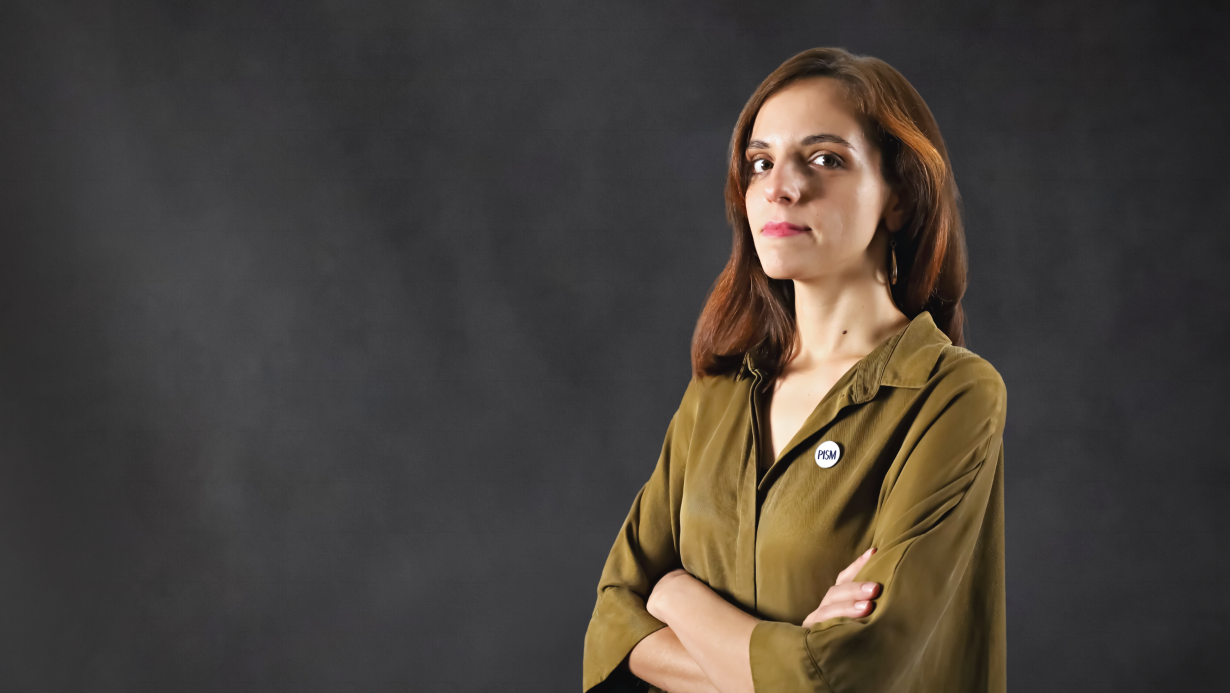Arab States and the War in Ukraine
Most Arab states are trying to remain neutral towards the Russian aggression against Ukraine. While the U.S. remains a key partner for many of them, relations with Russia are an increasingly important element of the progressive diversification of their foreign policy. Growing Western pressure on them to distance themselves from Russia may result in a more intensive turn of these countries towards China, but such pressure remains necessary given their potential to, for example, replace energy imports from Russia.
_sm.jpg) Fot. VIACHESLAV RATYNSKYI/Reuters/Forum
Fot. VIACHESLAV RATYNSKYI/Reuters/Forum
How have Arab states reacted to the invasion?
Only two Arab states expressed a negative stance on Russia’s invasion of Ukraine. The first was Lebanon, whose foreign minister, Abdalla Bou Habib, condemned the Russian aggression. This statement, however, was severely criticised by members of Hezbollah, which is an important force in the Lebanese parliament. The second state was Kuwait, which was on the list of 80 sponsors of the UN Security Council resolution calling on Russia to stop its military operations in Ukraine. In turn, the United Arab Emirates (UAE), which have the status of a non-permanent member of the Security Council until 2023, abstained from voting (but supported the General Assembly resolution).
The Syrian regime expressed an extremely favourable position towards Russia on the war, in line with Russian propaganda. Bashar al-Assad recognised the so-called “People’s Republics” just hours after Russia did. After the invasion began, he called it a “historical correction” and an effort to restore world order.
The remaining Arab states maintained neutral, a stance confirmed also by the Arab League (AL) when it met on 28 February. This is a result of, on the one hand, the historical importance of relations with the U.S., and, on the other hand, the increasing role of Russia in the Middle East and North Africa as a source of wheat and arms and a partner levelling up relations with Western partners.
What role does Russia play in Arab states’ foreign policy?
Maintaining neutrality has been in line with the foreign policy of the most important Arab states such as Saudi Arabia, the UAE, and Egypt in recent years. One of the main assumptions is that it allows for diversification of foreign relations and preventing Western countries from making cooperation beneficial to Arab autocrats dependent on the observance of human rights. Russia (as well as China) is an important ally in this regard. In 2014–2018, Russian arms exports to the Middle East and North Africa increased by 16% compared to 2009–2013, and last year, after the UAE suspended the purchase of F-35 fighters from the U.S., Russia offered the Emirates joint production of Su-75 “Checkmate” stealth fighters.
Russia is also a key partner for the maintenance of the Assad regime. The recent actions of the remaining Arab states to fully normalise relations with Assad and restore Syria’s membership in the AL have strengthened Russia’s role in the region, which, from the perspective of Saudi Arabia and the UAE, is also intended to weaken Iran’s influence.
What does the neutrality of the Arab world mean for Western countries?
Their neutral position is also a decisive factor in the reluctance of Arab oil and gas exporting states to increase resource extraction or temporarily redirect some supplies from Asia to Europe. The U.S. administration signalled that need before the invasion and during President Joe Biden’s talks with the Emir of Qatar Tamim bin Hamad al-Thani. However, Qatari Energy Minister Saad al-Kaabi stressed that even a temporary change in Qatari gas exports was unlikely. Saudi Arabia announced that the kingdom has no intention of increasing production. A similar position was expressed by the Organisation of Petroleum Exporting Countries
(OPEC+), emphasising that its members plan to increase production only in April. Saudi Arabia and the UAE fear that increasing the supply of resources could intensify the rivalry with Russia and weaken the organisation. Moreover, the Asian market remains a priority for Arab states because the energy transformation there is not as dynamic as in the EU. In addition, Asian states and Qatar are bound by long-term contracts favoured by the principality.
Could increasing the pressure on Arab states change their position?
Increased pressure from Western countries is associated with a risk that it may push the Arab states closer to Russia as a result of Arab leaders’ reluctance to become more dependent on the democratic world (this happened when the U.S suspended military support for Egypt after the coup in 2013) or that they may develop deeper relations with China. Additionally, the effectiveness of the pressure would be limited by anti-Western or anti-Ukrainian media pushing the idea that Western policy is destabilising the Middle East (like i.e., invasion on Iraq in 2003) as it is perceived as imperialism. Pan-Arab TV stations reported that the Ukrainians were making it difficult for Arab students to return to their home countries. In turn, the support of European states for the creation of an international volunteer army to support Ukraine was described as Islamophobic and racist compared to the perception of indifference to Israel’s unilateral actions in the conflict with Palestine.
It is therefore important that the embassies of European countries and EU delegations in the Arab world be more involved in spreading information in Arabic about the Russian aggression in Ukraine. In addition, Western governments could increase communication with the Arab diaspora and strengthen the support from them through the evacuation of the Arab residents of Ukraine. The most important, and at the same time unlikely, would be a change in the UAE’s position on Ukraine. However, effective communication about the sanctions may increase concerns of Emiratis about doing business with Russian companies and therefore reduce it.


